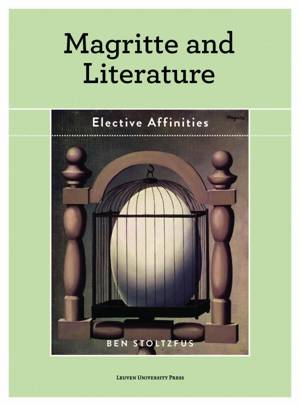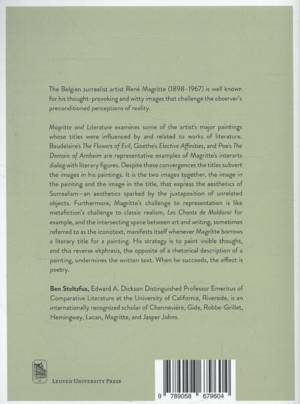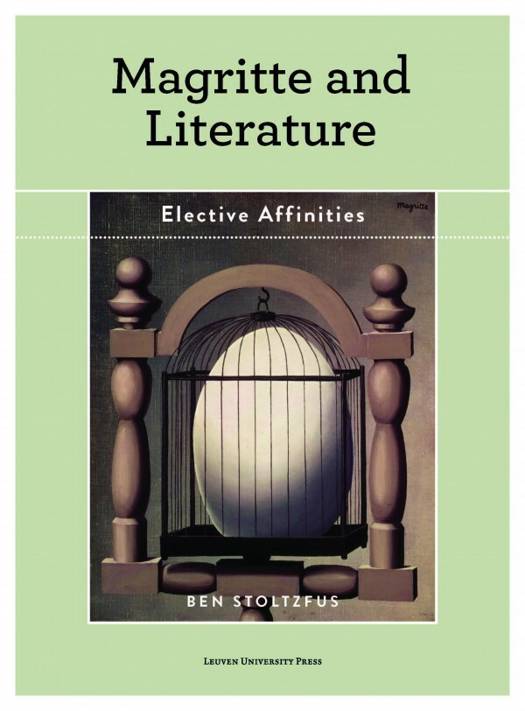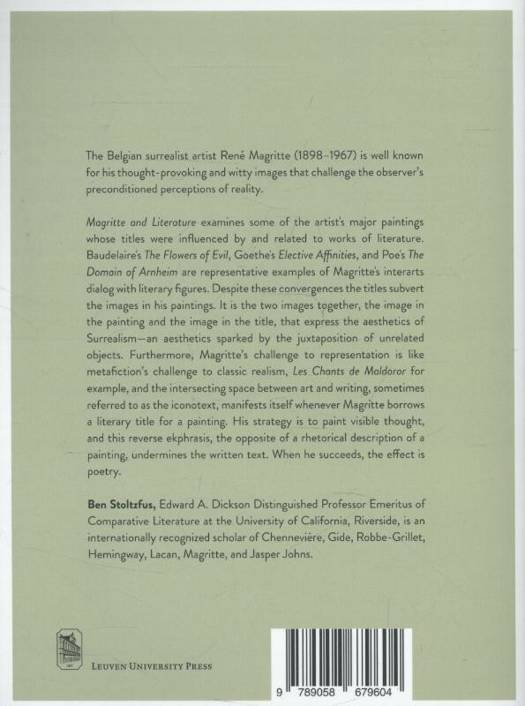
- Retrait gratuit dans votre magasin Club
- 7.000.000 titres dans notre catalogue
- Payer en toute sécurité
- Toujours un magasin près de chez vous
- Retrait gratuit dans votre magasin Club
- 7.000.0000 titres dans notre catalogue
- Payer en toute sécurité
- Toujours un magasin près de chez vous


Description
The Belgian Surrealist artist René Magritte (1898-1967) is well known for his thought-provoking and witty images that challenge the observer's preconditioned perceptions of reality. Magritte and Literature examines some of the artist's major paintings whose titles were influenced by and related to works of literature. Baudelaire's The Flowers of Evil, Goethe's Elective Affinities, and Poe's The Domain of Arnheim are representative examples of Magritte's interarts dialogue with literary figures.Despite these convergences, the titles subvert the images in his paintings. It is the two images together that express the aesthetics of Surrealism--for example, the juxtaposition of unrelated objects whose purpose is to spark recognition. Magritte's challenge to representation compares with metafiction's challenge to classic realism, Les Chants de Maldoror, for example, and the intersecting space between art and writing, sometimes referred to as the iconotext, manifests itself whenever Magritte borrows a literary title for a painting. His strategy is to paint visible thought, and this reverse ekphrasis, the opposite of a rhetorical description, undermines the written text. When he succeeds, the effect is poetry.
Spécifications
Parties prenantes
- Auteur(s) :
- Editeur:
Contenu
- Nombre de pages :
- 296
- Langue:
- Anglais
Caractéristiques
- EAN:
- 9789058679604
- Date de parution :
- 15-02-14
- Format:
- Livre broché
- Format numérique:
- Trade paperback (VS)
- Dimensions :
- 170 mm x 232 mm
- Poids :
- 680 g

Les avis
Nous publions uniquement les avis qui respectent les conditions requises. Consultez nos conditions pour les avis.







